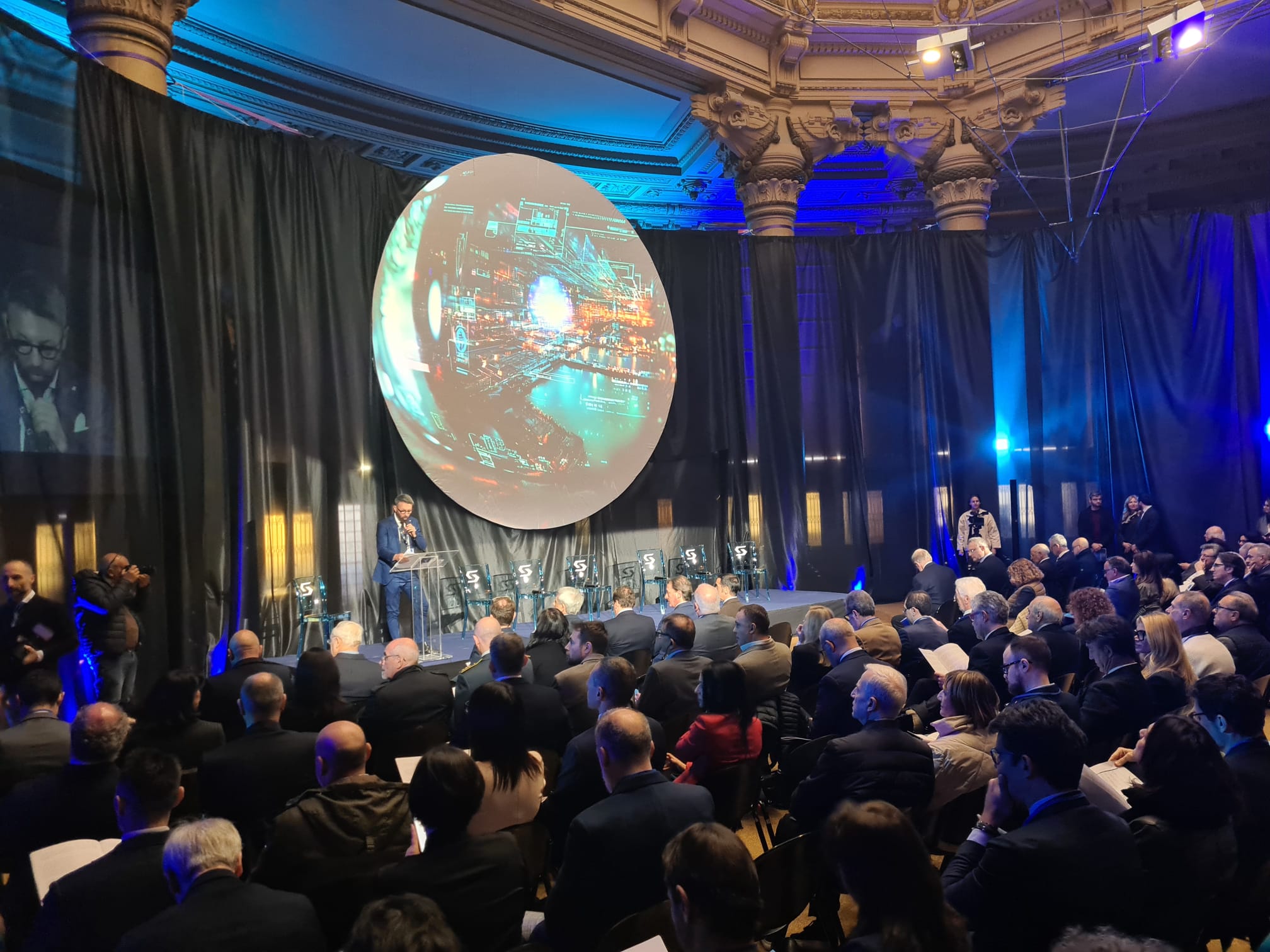Annual Public Assembly of Spediporto: Genoa Shapes the Future
The annual assembly of Spediporto provided an important opportunity for discussion on crucial issues for the future of Genoa, a city that, between its port tradition and new infrastructural challenges, is called to play a central role in the international logistics landscape. The meeting saw the participation of political, institutional, and economic representatives, who discussed development opportunities for the port and Genoese infrastructure, with particular attention to logistics, digitalization, and sustainability.
Spediporto emphasized how the Simplified Logistics Zone (ZLS) represents a unique opportunity for the economic revival of the territory, focusing on the synergy between public and private sectors to attract investments, reduce costs, and simplify regulations. Within the next six months, two pilot projects are planned to kick off a long-term plan, with the goal of creating over 10,000 new jobs and promoting advanced manufacturing. The ZLS has a 14-year timeframe, aiming to increase production and employment rates at the regional level. In this context, the city has the opportunity to become an innovative logistics hub, with sustainable projects such as the Green Logistic Valley, which includes the adoption of advanced technologies like aeroponic vertical farming and a vertiport for vertical take-off electric vehicles.
The assembly also highlighted the need to invest in the digitalization of port processes and to adopt green technologies to improve operational efficiency and reduce environmental impact. The port of Genoa is a key player in the economy of the Northwest, with an annual turnover of about 10 billion euros and over 130,000 jobs generated directly or indirectly. Moreover, the port is essential for Italy's trade exchange, with over 10% of Italian exports passing through Genoa. Therefore, modernizing infrastructure is crucial to maintaining and increasing the city's competitiveness, especially in light of global challenges.
Finally, the meeting addressed crucial issues related to port governance, emphasizing the importance of efficient, modern, and managerial resource management capable of facing future challenges. A public-private collaboration model, supported by tax breaks and bureaucratic simplifications, is seen as the key to attracting investments and innovation. With digitalization and sustainability as pillars, Genoa is preparing to become a competitive and sustainable logistics hub, ready to respond to global market challenges. In 2024, over 48% of the value of Italian exports was directed outside the European Union, with the United States absorbing 10% of sales. This data highlights how vital the port of Genoa and its logistics capacity are for the Italian and international economy.
The annual assembly of Spediporto thus outlined a clear and ambitious vision for the future of Genoa, a city that, despite facing global challenges, has all the credentials to consolidate its role as an internationally relevant logistics hub. The strategies outlined, from strengthening the Simplified Logistics Zone to promoting innovative and sustainable projects, put Genoa on the right path to becoming a reference point for global trade and advanced logistics. With solid collaboration between the public and private sectors, and a commitment to turning challenges into opportunities, the port of Genoa, along with its city, is destined to grow and prosper. With over 10,000 new jobs and forward-looking investments, Genoa has all the potential to become not only the beating heart of the Northwest but also a virtuous example of sustainability, innovation, and competitiveness at the international level. The future of Genoa, therefore, appears not only rich in opportunities but also solid and promising, with a city ready to leap into a new era of economic, technological, and social growth.
Written by Giampaolo Caserta

